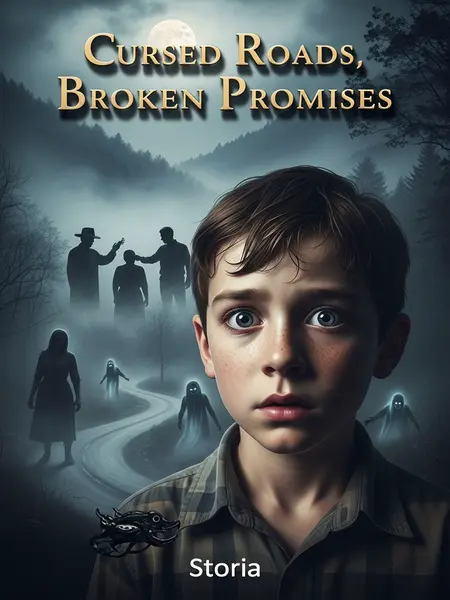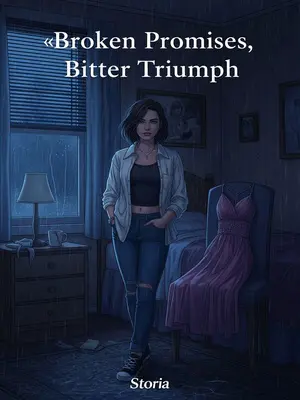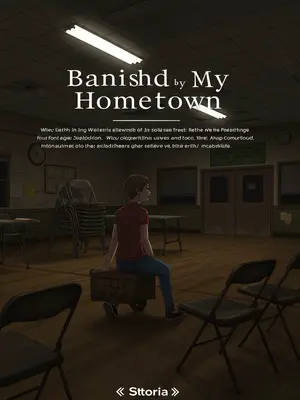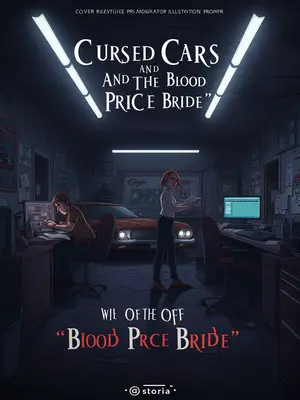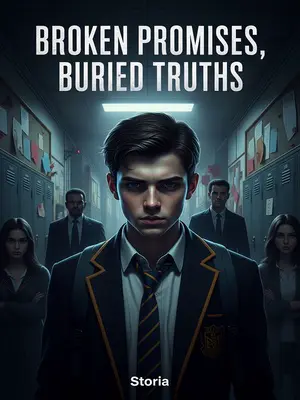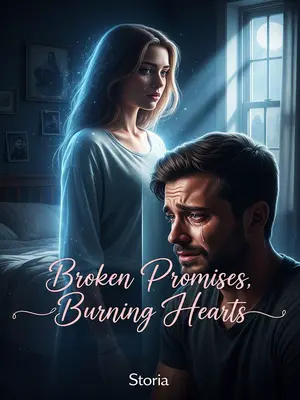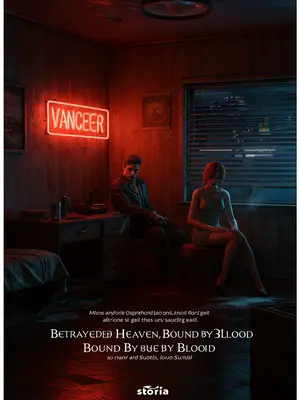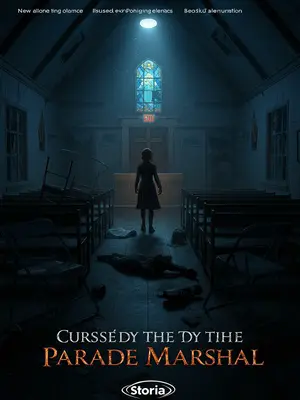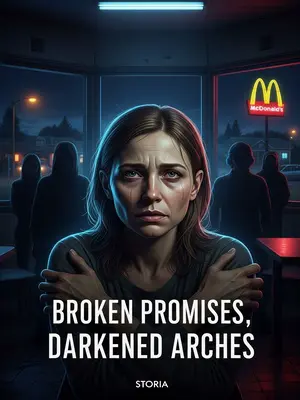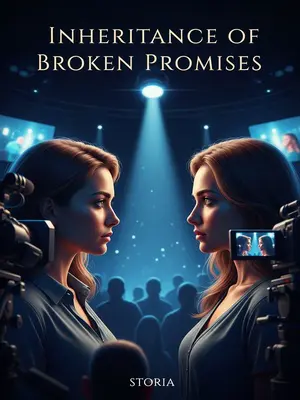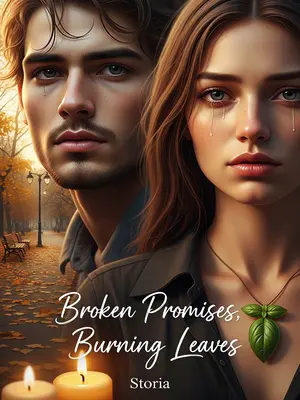Chapter 4: The Smile of the Dead
“Grandpa, Grandma, why are you back so late?”
My voice was shaky, but I tried to hide it. I clung to Grandma’s coat, feeling the cold air clinging to her.
Grandpa was covered in red clay, even in his hair, like he’d just crawled out of the ground. His face was pale, streaked with mud. There was a cut on his forehead, and his hands shook as he brushed dirt from his jacket.
He said, “I slipped coming down the mountain and blacked out. If your grandma hadn’t come looking, I wouldn’t have made it back.”
His words were heavy, and I could see the fear lingering in his eyes. Grandma squeezed his arm, her lips pressed tight.
Grandma frowned. “Alright, come in quick. In the future, don’t go revealing heaven’s secrets so much, or it’ll shorten your days.” She glanced at me, then added, “I’ll bring in the food from the kitchen.” I always wondered what she meant about ‘heaven’s secrets’—old folks had sayings about not tempting fate or meddling with things best left alone.
She gave Grandpa a stern look, then hurried to the kitchen, her footsteps quick and anxious.
Grandpa nodded and hunched inside.
He moved slowly, limping a little. I helped him to his favorite chair, and he let out a long, shaky breath.
Soon, Grandma brought in the chicken.
The smell filled the room, warm and comforting. She set the pot on the table, ladling out steaming broth for all of us.
She touched my face. “Eli, why are you so pale? Something happened, didn’t it?”
Her hand was cool and gentle. She looked me in the eyes, worry etched deep in her face.
I said, “Just now, a man with a crooked face came looking for Grandpa to drive. I told him to come in and wait, but he couldn’t even cross our threshold.”
I shivered, remembering the way he’d glared at the house. My voice cracked, and I looked down at my hands.
Grandpa’s face changed instantly. He grabbed my shoulders. “What did he look like? Were his eyes big or small?”
His grip was tight, almost desperate. I’d never seen him so rattled—his voice barely above a whisper, eyes wide with fear.
“Big eyes,” I replied.
My grandparents exchanged a fearful glance.
They stared at each other, silent, as if sharing a secret they didn’t want me to know. Grandma’s hand trembled as she set her spoon down.
Grandma said anxiously, “Henry, wasn’t it that guy, Joe Chandler? He didn’t listen to you—insisted on driving the mountain road himself, and even tried it at night in the storm.”
She wrung her hands, voice rising. “You warned him, Henry. You told him not to go.”
Grandpa frowned, still gripping my shoulders. “What else did he say to you?”
He searched my face, as if looking for some clue he’d missed.
I answered, “He said you promised to help him drive tonight, but you weren’t home.”
I watched Grandpa’s face go pale, his jaw set tight.
Grandma stomped her foot. She pointed at Grandpa. “I told you not to meddle in other people’s business! Now look, you’ve brought trouble to our door! When Tom Harlan comes back, you’d better stop helping people drive.”
She glared at Grandpa, her voice shaking with anger and fear. “Enough is enough, Henry. That road’s taken enough from this family.”
Grandpa frowned. “That road’s cursed. If I don’t help, more folks will die.”
He looked down at his hands, voice heavy. I could hear the guilt in his words, the weight of responsibility pressing on his shoulders.
Grandma said, “It’s fate. It’s not for you to mess with.”
She crossed her arms, her tone final. “Let the mountain keep its secrets, Henry. We’re not meant to fix everything.”
Grandpa narrowed his eyes and fell silent.
He stared into the distance, lost in thought. The only sound was the ticking clock and the soft clatter of dishes in the kitchen.
After a moment, Grandma asked, “What about Joe Chandler? Is he really dead or not?”
Her voice was small, almost afraid of the answer.
Grandpa replied, “Tomorrow at dawn, I’ll go to the foot of the mountain and see.”
He sounded resigned, as if he already knew what he’d find.
Grandma sighed. “I’ll go with you. And I’ll buy a few more chickens from Mr. Sanders.”
She tried to sound brisk, but her hands shook as she cleared the table. I knew she’d be up all night worrying.
Early the next morning, just as the sky lightened, my grandparents left. I was alone in the yard.
The world felt washed clean by the night’s storm. I pulled on my boots, the grass still wet with dew, and listened to the distant call of a mourning dove.
I tossed feed to the chickens and collected eggs from the coop.
The hens clucked around my feet, pecking at the cracked corn. I tucked the warm eggs into my apron, feeling a little more settled with each familiar chore.
Just as I put the eggs away, four men came into our yard. Two of them carried a stretcher, a white sheet covering the person on it—a body, no doubt.
Their boots left muddy tracks on the flagstones. The sight of the stretcher made my breath hitch. I set the eggs down, hands suddenly cold.
The tallest man asked me, “Kid, is this Henry Walker’s place?”
He had a deep voice, and his eyes looked tired, like he hadn’t slept in days. The others hung back, shifting from foot to foot.
I nodded. “Yes.”
He smiled. “Finally found the right spot. Kid, where’s your grandpa? I need him to drive.”
He tried to sound friendly, but his smile didn’t reach his eyes. The other men eyed me warily, their faces drawn and pale.
“My grandpa’s not home.”
I kept my distance, glancing at the stretcher. The white sheet fluttered in the morning breeze.
The man looked surprised. “When will he be back?”
He checked his watch, impatience creeping into his voice.
“He should be back before dark.”
I hoped it was true. I didn’t want to be alone with these men for long.
“Then we’ll wait in the yard.”
They all sat down, the tall man on a bench, the others next to him. They carried a strong, unpleasant odor—the same scent I’d smelled on my great-grandpa before, the smell of someone close to death.
The stench was thick, like old sweat and damp earth. I wrinkled my nose, trying not to breathe it in.
The tall man took out a pack of Marlboros and passed them around. They were boxed cigarettes, not hand-rolled.
He flicked his lighter, the flame catching for a moment before the wind snuffed it out. The men smoked in silence, eyes fixed on the ground.
He said, “This place is cursed. We have to get over the mountain before dark.”
His words sent a chill through me. The others nodded, faces grim. It was the kind of talk you heard in the diner when folks thought kids weren’t listening.
Next to him sat a fat man with a scar running down his cheek, who looked mean and hard to handle.
His eyes were small and sharp, darting from me to the house. He leaned back, boots propped on the edge of the porch.
The fat man grinned. “That winding road’s evil. Folks die here all the time. We pick up the bodies at the bottom and sell them to the authorities. Easy money. Only us brothers know about this chance to get rich.”
He laughed, a low, ugly sound. The others glanced away, uncomfortable. I felt my stomach turn at his words.
As soon as he finished, the tall man shot him a glare.
The fat man’s grin faded, and he looked away, muttering under his breath.
The fat man turned to me and smiled. “Big brother, just a kid. He doesn’t get what we’re saying.”
He winked, but there was nothing friendly in it. I edged closer to the door, just in case.
Then he said to me, “Hey, you got anything to eat? Bring it out, I’ll pay you.”
He reached into his pocket, jingling coins, but his tone was more demand than request.
I said, “There’s leftover potatoes from last night.”
I pointed toward the kitchen, hoping he’d lose interest.
The fat man spat. “Potatoes? I want meat. Bring out your family’s meat and cook it.”
He leered at me, licking his lips. The other men looked away, embarrassed or ashamed.
The tall man glared at him. “Knock it off, Billy. We’re here to ask for help, not cause trouble.”
His voice was sharp, cutting through the tension. Billy scowled, but didn’t argue.
The fat man’s eyes flickered, and he fell silent.
He crossed his arms, sulking. The yard grew quiet, the only sound the crows cawing in the distance.
Suddenly, a gust of wind swept through the yard. The white sheet covering the body blew aside, revealing the face underneath. Instinctively, I looked down and saw it was Joe Chandler. His eyes were wide open, his face twisted in a strange expression—as if he were smiling.
The sight froze me in place. Joe’s grin was stretched too wide, his teeth bared in a way no living man would smile. The other men fell silent, their cigarettes burning down to ash as they stared at the body. I felt a cold shiver run down my spine, the wind carrying the scent of rain and something older, darker, that lingered on the mountain.
